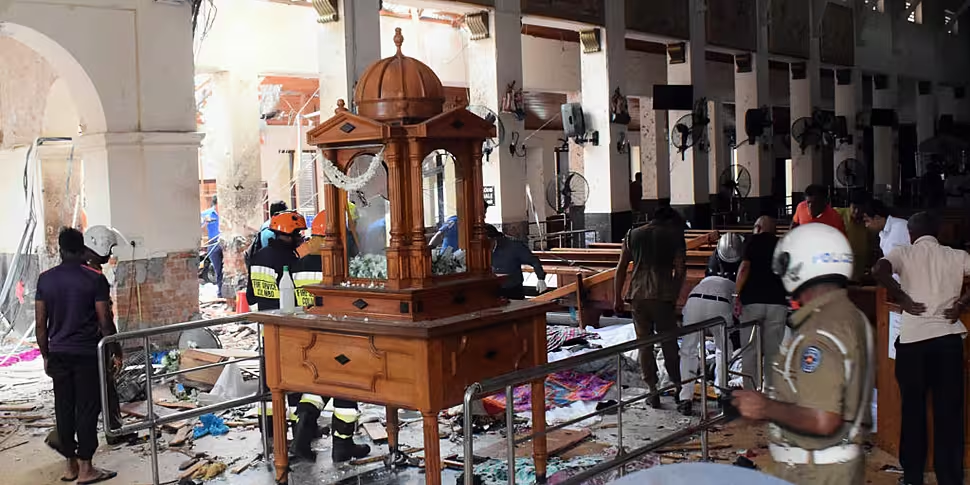It has been claimed the Sri Lanka bombings were carried out in "retaliation" for last month's terror attacks in New Zealand.
The country's ministry of state for defence Ruwan Wijewardene says preliminary investigations indicate the suicide bombings at three churches and four hotels were carried out in response to the attacks at New Zealand mosques last month.
Two domestic Islamist organisations are believed to be behind the Sri Lankan killings.
Islamic State has claimed that its "fighters" were responsible, but has provided no evidence.
Mr Wijewardene called for one of the groups accused of being involved to be banned and listed as a terrorist organisation:
I demand the Government of #SriLanka to immediately ban National Thowheeth Jama’ath & to list them as a terrorist organization. #lka
— Ruwan Wijewardene (@RWijewardene) April 23, 2019
Today, it was confirmed the death toll from the attacks has risen to 321 people, include 38 foreigners.
Around 500 people were injured in the blasts.
Police in the country have now arrested 40 people in connection with the attacks.
Sri Lanka is today observing a day of national mourning in the wake of the Easter Sunday attacks.
A mass funeral for victims has been held, with 30 of those killed laid to rest at St Sebastian church in Negombo.
More funerals are scheduled for today and over the coming days.
Earlier today, Sri Lankans observed three minutes of silence in memory of the hundreds of people killed in the deadly blasts.
Authorities in Sri Lanka temporarily blocked major social media applications such as Facebook, YouTube and Snapchat in the wake of the attacks - claiming "false news reports" were circulating.
A state of emergency remains in effect in the country.
The Department of Foreign Affairs here is advising any Irish citizens in Sri Lanka to exercise a "high degree of caution".









